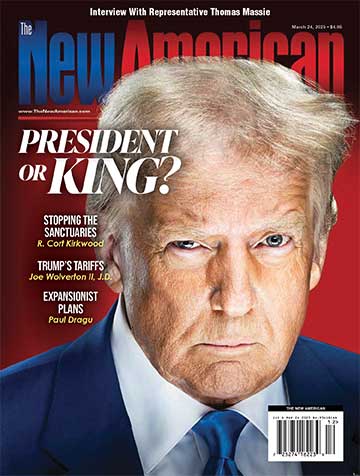
New Zealand is lifting most of its Covid-19 restrictions, including vaccine mandates and passports, even as the island nation experiences its highest rates of infection since the pandemic began.
Prime Minister Jacinda Ardern made the announcement Wednesday, saying she was describing “the next set of changes to our COVID settings in New Zealand.”
Those changes include eliminating all caps on attendance at outdoor gatherings (“We know being outdoors for gatherings is safe,” Ardern said, as if that had only just been discovered) and increasing the limits on indoor gatherings under the country’s strictest regimen from 100 to 200. Vaccine mandates for public and private employees, except those in healthcare, elder care, corrections, and border enforcement, will be repealed. Vaccine passes will also be a thing of the past.
Ardern asserted that her restrictions, instituted in March 2020, when the country of five million had a grand total of five Covid-19 cases, had “been successful” in stemming the tide of infections. But, she added, “it has also been bloody hard.”
It has certainly been hard on ordinary Kiwis, who were forced to lock down, get shot up with experimental vaccines, present and scan vaccine passports to enter businesses and other public places, and endure economic devastation. The Associated Press noted that “international tourism used to account for about 20% of New Zealand’s foreign income and more than 5% of GDP but evaporated after the South Pacific nation imposed some of the world’s strictest border controls after the pandemic began.”
According to the AP, with New Zealand today experiencing “some of its highest rates of coronavirus infections and hospitalizations since the pandemic began, with an average 17,000 new infections being reported each day,” Ardern has decided it’s time to relax her allegedly “successful” mandates.
Naturally, she claimed that Kiwis’ high vaccination rate (95 percent) was the impetus for her decision because it “means we now have a high level of collective immunity.”
Her pattern of relaxing restrictions at times of increasing infections, however, suggests that her moves have more to do with a recognition of political reality than with “following the science.” In October, as the delta variant caused a rash of cases despite a seven-week lockdown, Ardern slightly eased up on her mandates, saying “the return to zero [infections] is incredibly difficult.”
Now, admitting even more clearly what is behind her latest decision to give New Zealanders back some of their freedom, she says, “Everyone has been safer, but everyone is also tired.” In other words, people are mad as heck and aren’t going to take it anymore, as a recent anti-vaccine-mandate protest outside Parliament demonstrated. (Ardern denied the protest had anything to do with her decision, saying, “[We’re acting] because it’s safe to do so, not because anyone arrived on the front lawn of Parliament.”)
Politically, Ardern, a member of the Labor Party, is in much the same position as Democrats in the United States, trying to thread the needle between appealing to voters who are fed up with her destructive dictates and her far-left allies who want her to crack down even harder. According to 1News, the Green Party, which still believes that toddlers are at high risk of Covid-19 infection, called her latest move “far too premature” and demanded “a school-based vaccination program,” “high equity in vaccine coverage,” and “free N95 masks.”
“The Government should be trying to stay ahead of the virus and doing everything we can to avoid a second peak,” said Green Party Member of Parliament Teanau Tuiono.
In reality, though, there is little the government can do to stop a virus; at best, it can merely delay its eventual rampage through the population. New Zealand’s harsh restrictions were widely praised, yet it is now seeing record-high case rates. Likewise, South Korea’s much-lauded technocratic approach to the virus has failed to prevent a massive omicron outbreak within its borders. Perhaps the best solution, as many have suggested all along, is to allow a disease to run its course until herd immunity is reached — something that would probably have occurred in most countries a year or more ago if politicians had not seized the opportunity to become dictators in the service of the Great Reset.





